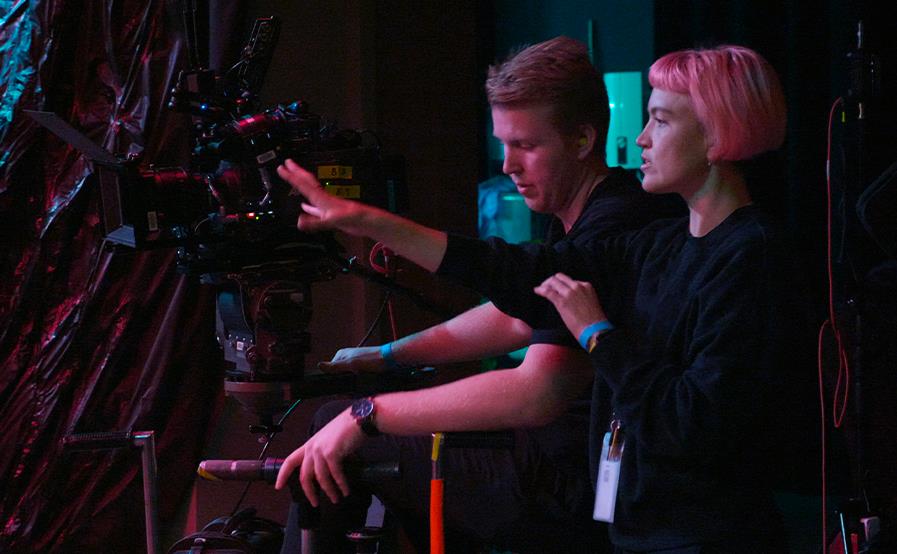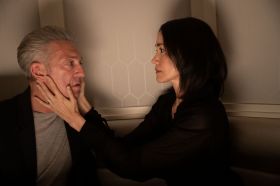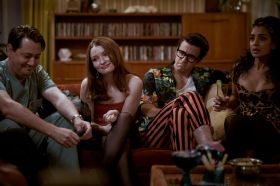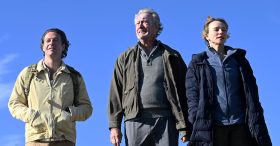Join AFTRS at the 2021 Postgraduate Information Week, online from Monday 12 to Friday 16 July, to find out how you can begin a creative career.
With expert help, a hobbyist filmmaker can discover a viable career. Independent director and producer Jayden Rathsam Hua recently graduated from the Australian Film Television and Radio School (AFTRS) in Sydney. Now, he’s equipped with the skills, knowledge, and networks to crack into the industry, as well as a festival-bound short film to his name.
Hua had been dabbling in filmmaking since his high school days with comedy shorts on YouTube, but initially decided to study a combined undergraduate degree in law and media at a generalist university to gain broader experience. While some of the knowledge he gained during this time would prove to be valuable, he realised that enlisting at a specialist institution would give him the best possible chance at turning his original passion into a career.
‘For me, pursuing a Masters at AFTRS was a great way to hone my creative identity and meditate on what I was interested in,’ Hua said. ‘It also gave me a much better idea of what the film industry actually looks like and how to navigate it as a professional.’
EXPERTISE AND CONNECTIONS
Recognising he already had some level of technical skill, Hua enrolled in a Masters of Arts Screen: Producing at AFTRS so he could learn how to transform ideas into projects. In his words, the Masters gave a ‘very robust, macroscopic view’ of the film industry’s inner workings, ranging from how to get projects off the ground, to how sourcing funding differs across formats such as television and digital streaming content.
‘Good ideas can only take you so far,’ Hua said. ‘What mattered to me was understanding what the most strategic thing was when it came to transforming that idea into a product.’
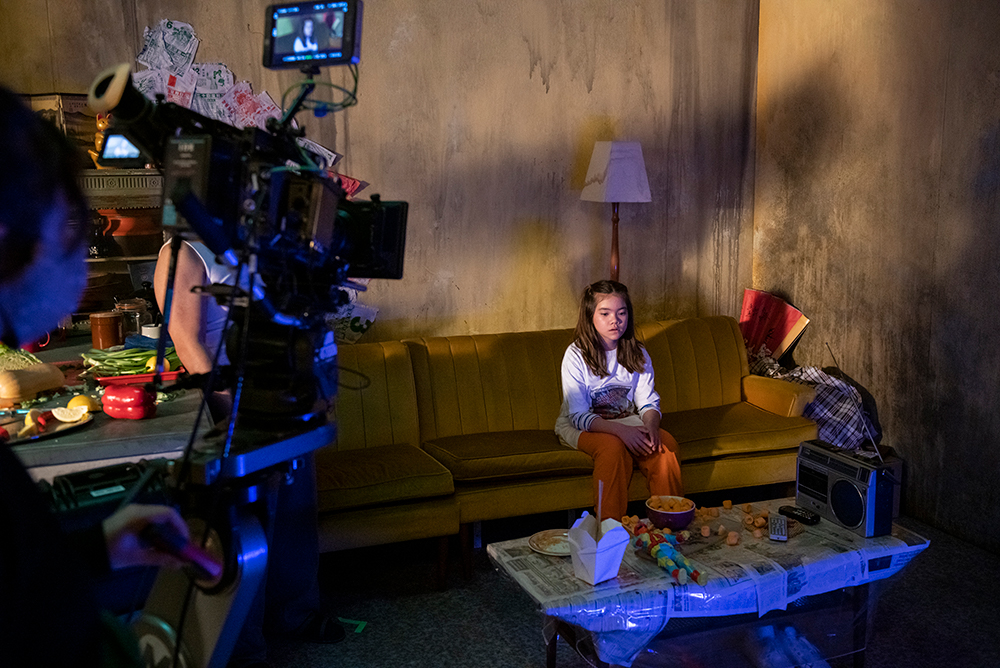
Shooting Hua’s major final year work, Sushi Noh. Image: Jayden Rathsam Hua.
Hua found that one of the biggest benefits of studying at AFTRS was the access to industry talent and being able to learn directly from active practitioners. Guest lecturers populated the Masters content, offering practical experience in classes and arming students with the knowledge necessary to navigate different screen sectors. Some of the professionals Hua recalled having a big impact during his studies included media consultant and former Channel Nine executive Martin Hersov; film producer Matt Reeder, who produced 2020 feature film Hearts and Bones, starring Hugo Weaving; and digital content specialist Ella Colley, Creative Campaigner for Greenpeace Australia.
While COVID-19 impacted the ability to undertake placements, Hua was still able to form industry connections outside of AFTRS in various opportunities, including as a story development intern at Beyond Armarna (a subsidiary of film and television production company Beyond Entertainment), and as a digital content producer for Channel Nine series Space Invaders as part of the WTFN production team. Based in Sydney, he’s currently working as a post-production assistant at the George Lucas-founded visual effects company Industrial Light & Magic.
UNLEASHING CREATIVE POTENTIAL
Beyond equipping students with the technical skills and specific knowledge required to make an impact in the industry, AFTRS also helps to provide career direction and refine creativity. All AFTRS Masters students write a creative thesis, with the freedom to choose any topic related to their field of study. Along with the largely self-directed nature of his studies, Hua found this to be a highly formative experience in shaping his filmmaking and identity. His research – which looked at how Asian horror techniques could be adapted into an Australian context – and subsequent professional reflection revealed that his previous comedy-centric creations didn’t necessarily line up with the crime and horror media he consumed and enjoyed.
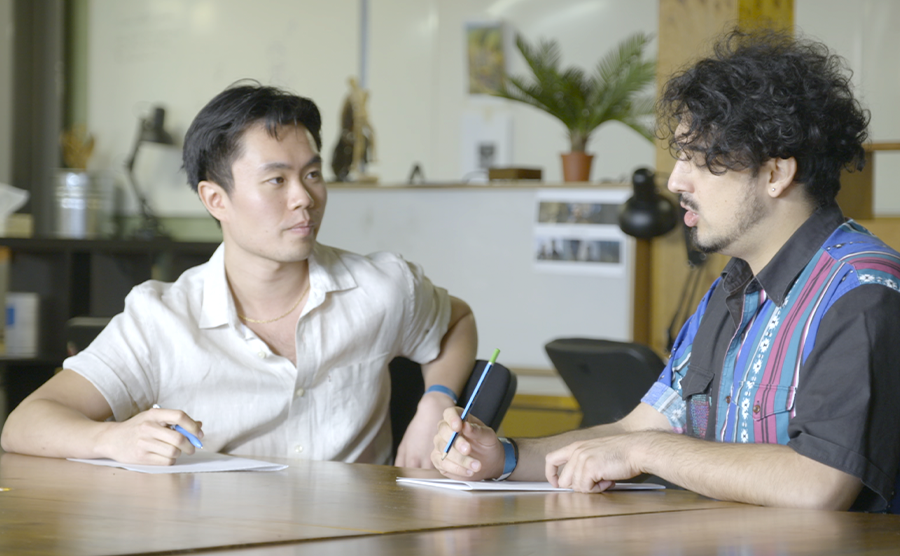
Studying at AFTRS creates opportunities for like-minded creatives to connect and work together. Image supplied.
‘When I came to AFTRS, I had a realisation that my output was diametrically opposed to what I consumed,’ Hua said. ‘A huge objective of mine was to reconcile those two aspects of my viewing and creating habits and see if I could create a unique and organic voice for myself.’
Hua continued: ‘A large time at AFTRS was spent investigating ways I could use humour to achieve different reactions from audiences. So as opposed to making audiences laugh or feel comfortable, I wanted to find ways to use humour to unsettle and make an audience feel uncomfortable and destabilised in the context of a scene or arc of a narrative.’
This process spawned Sushi Noh, a short horror film written and directed by Hua as his major final-year project. Inspired by a range of influences including Ari Aster’s film Hereditary, psychological thriller anime Perfect Blue, and videogames Resident Evil and Amnesia, Sushi Noh explores the crossroads of the subconscious manifesting in real-life from the perspective of a young child.
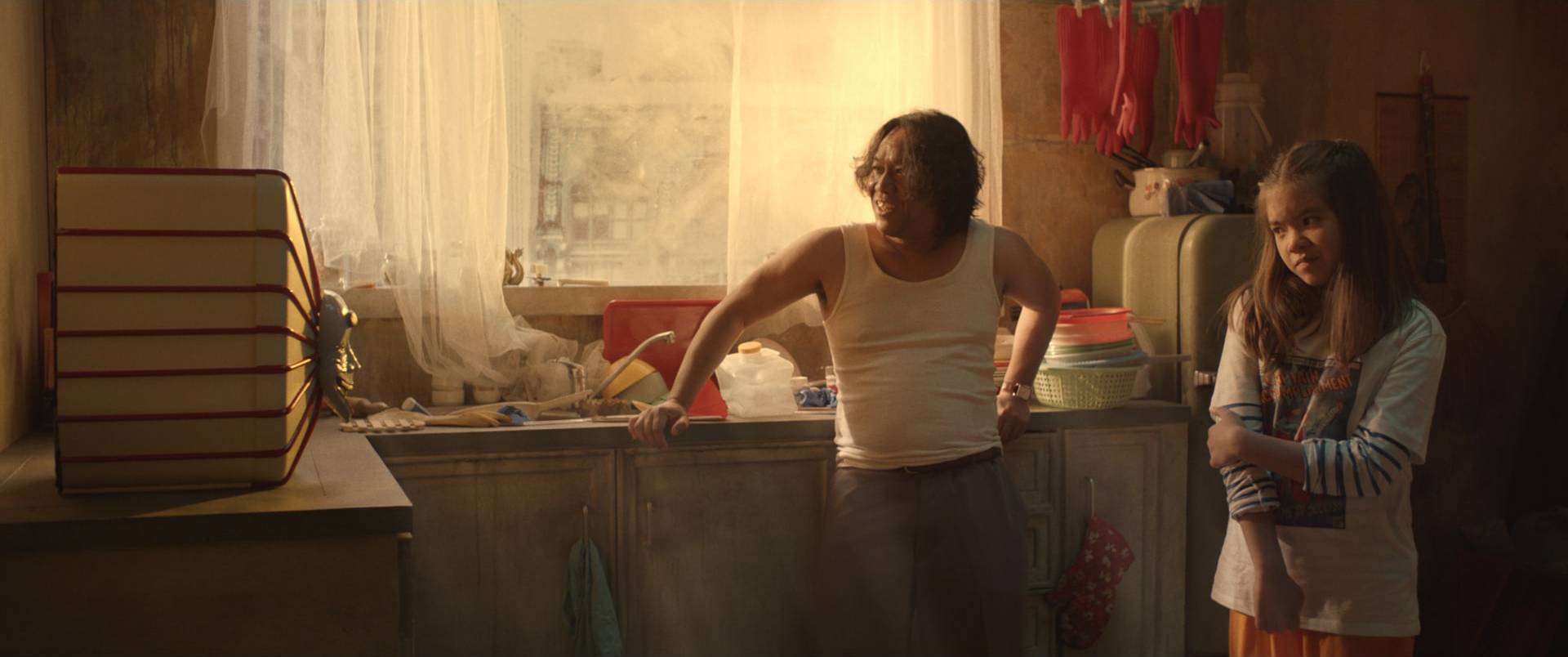
A scene from Sushi Noh. Image: Jayden Rathsam Hua
With all AFTRS Masters students taking on a major project, this created plenty of great opportunities for like-minded creatives to connect and work together while directly applying what they had learnt in a practical setting. The school also assisted with funding and resources, including access to industry-standard sets, technology and editing suites. Sushi Noh is currently going through the festival application process, with a promising level of interest shown so far.
With AFTRS helping to shape his filmmaking passions into something he can make a career out of, Hua recommends potential students pursue what makes them curious, and connect with what made them love filmmaking or being creative in the first place. Hua also suggests not stressing about creating a masterpiece – making a start is far more valuable.
Regardless of your budget, if you’ve got a good story and a good idea, there’s always a way to make something,’ Hua said. ‘Don’t be afraid that the next thing you make isn’t the best thing that you’re ever going to make. I think there’s so much to be found in the practicality of learning the tools of the trade and learning about the way your mind works.’
Join AFTRS at the 2021 Postgraduate Information Week, online from Monday 12 to Friday 16 July, to find out how you can begin a creative career.
